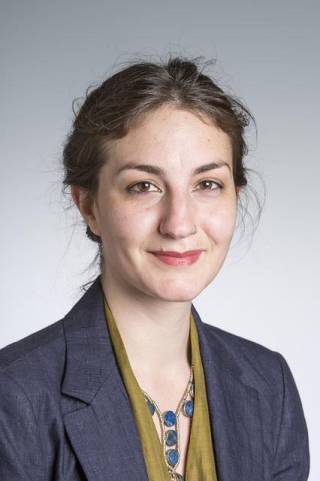Dr Yağmur Heffron

Please tell us about your current role in the department?
I'm Lecturer in the History of the Ancient Middle East. My teaching covers ancient Iraq, Syria, Turkey, and neighbouring regions from the emergence of writing (sometime around 4000 BC) all the way to the fall of the Persian Empire (enter Alexander the Great). More specifically, my research interests lie in religion and cultural contact in ancient Anatolia (Turkey) during the first half of the second millennium BC. You can imagine the "19th century" looks quite different from my end!
What drew you to UCL History?
I trained as an archaeologist, so what I found most exciting about UCL History was the department's approach to material culture, which is incorporated into multiple levels of teaching as well as research. Being part of a community of historians who were as interested in objects as they are in documents was probably the biggest attraction for me. On top of that, London is just bursting with museums and monuments, and of course UCL has its own incredible collections of all manner of "things". Things can make the past accessible in quite unpredictable ways, and I'm particularly interested in the way text- and object-based histories dovetail.
Before coming to UCL, I always thought the students here looked so effortlessly cool, and they really are. I think it's a treat to be teaching such a sharp, busy, and incredibly diverse community of students.
What is your life like outside UCL?
My life outside the office/library/classroom is mostly taken up by archaeological fieldwork in Turkey, which of course is still part of my 'day job' - but life on excavation brings with it so many unexpected encounters, surprise excursions, and such an incredible range of social interactions that I feel I don't often have to make an extra effort to go in search of adventure. Popular culture insists that archaeology has to be about mummies or treasure to be interesting, but in real life it's the vegetable run to the local market that could easily turn into a full-blown adventure, or you could be politely sipping tea with the local dignitaries to suddenly find yourself on the cusp of a comedy of errors. Then there are the countless weddings, feasts, and special occasions one gets to experience, and a lot of sight-seeing. I enjoy the life that unfolds around archaeological fieldwork, when I'm transplanted into places and communities very different from my own, and also become part of a very mixed community of specialists who work together, and there is a constant transfer of knowledge and exchange of stories.
What working achievement are you most proud of?
During my time as Assistant Director of the University of Chicago's Zincirli Expedition (south-east Turkey), one year we hired a small number of women to work as unskilled labourers on site, a job traditionally reserved for men in excavations in the Middle East. This inspired me to devise a pilot project on the inclusion of women into unskilled archaeological labour. The next year I generated some money to ensure a minimum quota of women were hired for the full season, so that we could maintain a mixed-gender local work force on site. During that season I made field observations and conducted surveys and interviews with the workers as well as the archaeologists, to gauge their responses to the inclusion of women in the workforce, and how this may have affected the dynamics of fieldwork. I'm (slowly) writing up the results, but I believe the project itself already gave some visibility to the issue of a gendered division of archaeological labour, and got the Zincirli community (locals, workers, archaeologists, students) to think consciously about the presence vs. absence of women in the workforce. I've since left Zincirli, but the project continues to hire women regularly, and I'd like to think that I've played a part in establishing this as normal practice. There are already growing trends of including women in the seasonally hired workforce for archaeological excavations in Turkey, and I plan to build on my pilot project to document this trend, which I hope will encourage hiring practices to achieve a fairer balance.
Do you have any advice for someone looking to build a career in academia?
I would say, invest in your colleagues - especially the people who have been students with you, because the experience of learning/training together is very precious. Take an interest in what people around you are working on, the research questions they've formulated, why their work excites or frustrates them - you will be surprised to find a lot of shared points of reference. 'Networking' in academia is important, but I think its real value lies in building relationships over time instead of strategic hobnobbing. My second piece of advice is inspired by what a senior (and wildly successful) colleague once told me, which was that the whopping majority of things you apply for will end in rejection. Don't be discouraged. If you like what you do, and know you have a good idea, go after it.
 Close
Close

